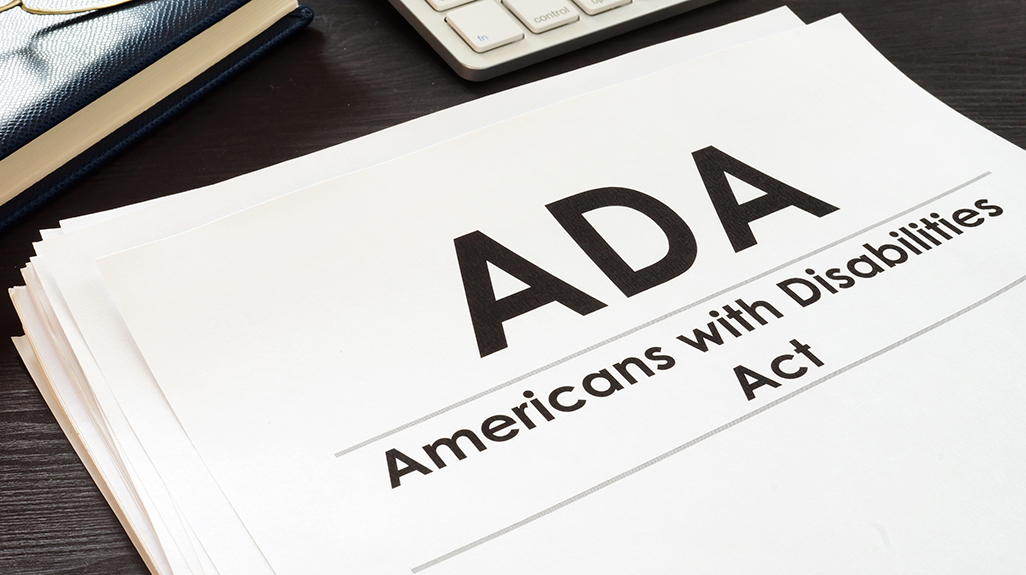ADA Compliance and Real Estate Websites

When thinking about accommodating clients with a disability, you probably remove physical barriers so people of all abilities can easily come and go from your office.
But what about your website? Are you accommodating those with disabilities on your space on the internet?
The Americans with Disabilities Act of 1990 is a civil rights law that prevents discrimination against individuals with disabilities and mandates such accommodations. A disability under the law is defined as a physical or mental impairment that substantially limits one or more major life activities such as seeing, hearing, speaking, breathing and working, among other activities. With over 8.1 million people who are visually impaired and 2 million people who are legally blind according to the U.S. Census Bureau, the law covers more than brick and mortar.
With a 131% increase in non-compliant website filings in the first quarter of 2019 alone according to the National Association of Realtors®, the risk of a claim is very real. The ADA guidelines are clear that websites should be fully usable by people with disabilities, especially by those using assistive technology like screen readers. Violations are subject to federal and state Fair Housing Act claims. Inaccessible websites can prevent the disabled from accessing the information they need to apply for jobs, shop, as well as secure housing. All NAR members’ and state association websites need to provide accessibility options for the disabled.
What should you do if you are contacted by an attorney who reports your website is non-ADA compliant? Pearl Insurance, a PAR sponsor, recommends that a real estate professional should never agree to a phone interview or to meet with anyone alleging a violation of the law without legal counsel present. If a real estate professional receives such a letter or email, the first step is to contact their attorney and insurance broker. Secondly, they should contact NAR and PAR’s attorney. Deciding whether to fight a demand or settle a claim is a legal decision.
If a real estate professional gives a phone interview with an ADA representative without legal representation it could drastically affect the defense of the ADA complaint. This scenario could also increase the risk exposure to the real estate professional, according to Pearl Insurance.
Real estate professionals nationwide continue to receive notices of website non-compliance. Though it does not appear these complaints are being filed in federal court at this point, the demand letters threaten litigation. It is recommended real estate professionals push for a face-to-face interview with the opposing attorney with their own defense counsel present. In addition, they should notify their website administrator of the alleged violation(s). Confirmation from their website administrator that the stated violations are being corrected should be obtained, especially since some websites are leased. The bottom line is websites, particularly in the service industry, should be usable by persons with disabilities.
To be proactive in updating your website and to protect your business from possible claims, contact your website administrator or hire an IT expert to audit your website and suggest accessibility
improvements which may include voice overs and closed captioning, adaptive software and specialized browsers. There are also numerous third-party solutions that can address specific issues such as text and cursor size, font type, contrast ratio and keyboard integration through widgets. People with disabilities should be treated as equal under the law. Whether that’s access to physical spaces or information and opportunities, it is a responsibility all of us should take seriously.
Pearl Insurance offers Errors & Omissions Insurance for those less-than-perfect moments.
Topics
Share this post
Member Discussion
Recent Articles
-
Tri-County Realtor® Leads Efforts to Fight Hunger
- November 21, 2024
- 2 min. read
Heather Griesser-LaPierre, a member of Tri-County Suburban Realtors®, led an initiative last month to pack 238,000 meals for hurricane victims alongside fellow Realtors® and other volunteers.
-
9 Tips to Save Money When Moving
- November 20, 2024
- 3 min. read
For new homeowners, moving costs can add up quickly. Here are nine tips to keep moving costs down, from Point2.
-
Earn Pa. CE Credit at Triple Play: Agency Relationships and Disclosures
- November 19, 2024
- 2 min. read
Taught by two PAR associate counsels, “Agency Relationships and Disclosures in Pennsylvania” is a three-hour course that is a Pennsylvania SREC-required topic for the 2024-2026 continuing education cycle.
Daily Emails
You’ll be the first to know about real estate trends and various legal happenings. Stay up-to-date by subscribing to JustListed.



